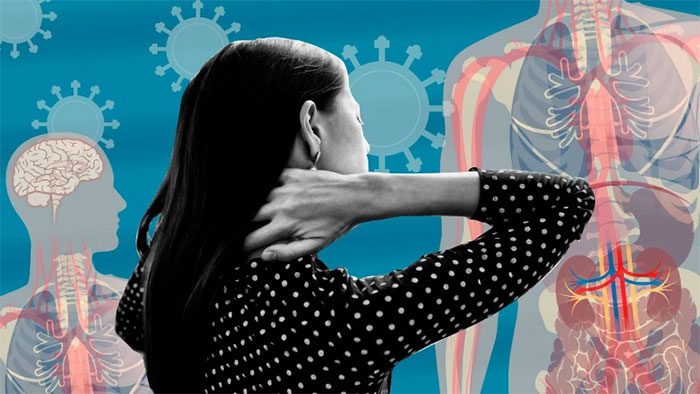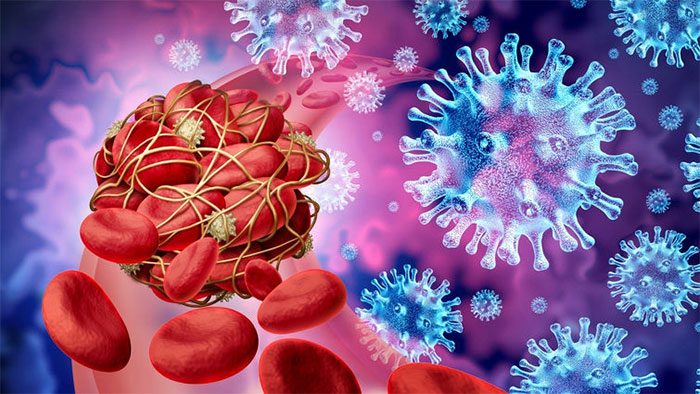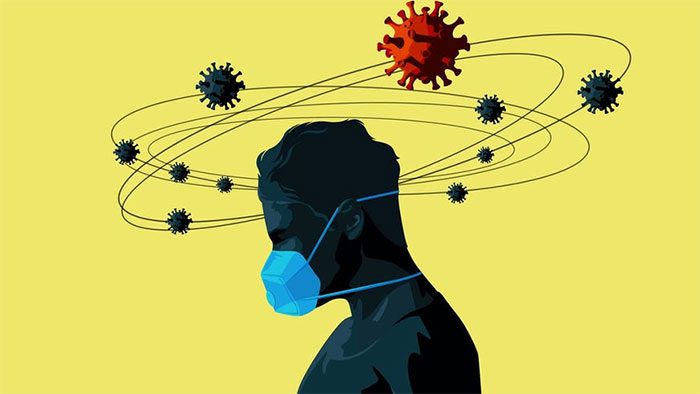A recent study indicates that the blood of many individuals who have recovered from Covid-19 contains microclots, which are believed to be the cause of persistent symptoms despite testing negative for the virus.
“One of the biggest failures of the Covid-19 pandemic has been our slow response in diagnosing and treating post-Covid-19 syndromes. Approximately 100 million people worldwide continue to experience these symptoms,” stated Resia Pretorius, Head of the Department and Professor of Physiology at Stellenbosch University, South Africa, in her analysis published in The Guardian.
This number is expected to be much higher due to underdiagnosis and the uncertainty surrounding the effects of Omicron and future variants.
In a recent study, Professor Pretorius and her colleagues found that the blood of post-Covid-19 patients contains difficult-to-dissolve microclots (small blood clots). She believes that this is what causes patients to suffer from persistent symptoms even after testing negative for the virus.

Post-Covid-19 patients often experience prolonged fatigue, muscle weakness, sleep difficulties, anxiety… (Photo: Financial Times).
Microclots in Post-Covid-19 Patients
Patients suffering from post-Covid-19 syndrome report a variety of symptoms, primarily fatigue, brain fog (forgetfulness, lack of concentration, poor clarity), muscle weakness, shortness of breath, low oxygen levels, sleep disturbances, and anxiety or depression.
Some patients are affected so severely that they cannot work or even walk a few steps. They may also have a higher risk of stroke and heart attack. One of the most concerning aspects is that even those who had mild Covid-19 or were asymptomatic can experience long-term weakness and illness.
Since early 2020, Professor Pretorius and other researchers have indicated that acute Covid-19 is not merely a respiratory illness; it significantly impacts the vascular system (blood circulation) and coagulation ability.
She cited a recent study showing significant microclot formation in the blood of both acute Covid-19 patients and post-Covid-19 patients.
In healthy individuals, blood clots can form (for example, when a finger is cut). However, the body breaks down these clots through a process called fibrinolysis.

Microclots may be the cause of post-Covid-19 symptoms. (Photo: Istock).
“In the blood of patients with long Covid syndrome, microclots are likely resistant to the body’s fibrinolytic processes,” the professor explained.
“We found elevated levels of various inflammatory molecules trapped within stable microclots, including clotting proteins such as plasminogen, fibrinogen, and Von Willebrand factor (VWF – a protein that carries factor VIII, necessary for platelet adhesion in the early stages of coagulation), and Alpha-2 antiplasmin (a molecule that prevents clot breakdown),” she elaborated.
The presence of stable microclots and abnormal platelet activation (which also participates in coagulation) has prolonged the clotting process and related vascular pathology, leading to cells not receiving enough oxygen to maintain the body’s functions (a condition known as cellular hypoxia). This hypoxic state may be a primary cause of many reported debilitating symptoms.
Misdiagnosis of Long Covid Syndrome
Post-Covid-19 patients often struggle to find treatment solutions during routine medical consultations, as there is currently no comprehensive pathological test to diagnose these patients.
They often receive feedback that their test results indicate normal or good health. Many are diagnosed with symptoms that may be attributed to psychological issues.
The main reason traditional laboratory tests fail to detect any inflammatory molecules is that they are trapped within antifibrinolytic microclots (which can be seen under fluorescent or bright field microscopy). When measuring the molecular content of the soluble plasma, inflammatory molecules, including auto-antibodies, are mostly overlooked.

Many post-Covid-19 patients receive inaccurate diagnoses. Their symptoms are attributed to psychological issues. (Photo: AFP).
Initial research findings suggest that treatments such as antiplatelet and anticoagulant regimens have shown promising results in post-Covid-19 cases, provided there is careful professional monitoring of any potential bleeding risks associated with these medications.
Additionally, blood separation therapy – which filters out microclots and inflammatory molecules – may also yield positive outcomes for patients.
“We urgently need to invest in more research and clinical trials to better understand and clarify the relationship between abnormal coagulation, hypoxia, and vascular dysfunction in patients with long Covid syndrome,” Professor Pretorius urged.
She believes that even individuals without post-Covid-19 symptoms could benefit from such research, as the symptoms reported in post-Covid-19 patients show many similarities to symptoms seen in other chronic and virus-related illnesses, including myelitis and chronic fatigue syndrome (ME/CFS) – a condition that has been regarded as a psychological phenomenon for decades.
“Just because we have not yet identified a biomarker for long Covid syndrome does not mean that such a biomarker does not exist. We need to investigate more thoroughly,” she stated.



















































